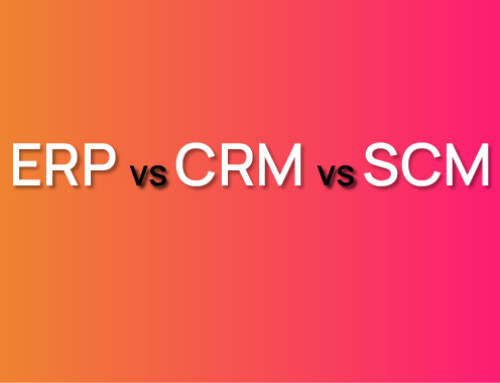Contents
No matter the market, there is usually enough construction work going around for all companies, even small construction companies, and contractors. According to the U.S. Bureau of Labor Statistics, employment in the industry grew by more than 5% between 2016 and 2017. This growth rate outpaced overall job creation, meaning that there’s a higher demand for construction workers than any other industry in America today. Not only that—with all those new homes being built (and renovated) across the country, there’s more money to be made on every project than ever before! So how does this translate into dollars? Well…
Average earnings of small construction companies
- The average annual income of a small construction company is $150,000.
- This is an increase over last year’s average annual income of $142,400.
- However, it’s still lower than both the average American wage ($53,440) and the average American household ($73,957).
How much small construction companies make compared to the average American wage
You may be surprised to learn that the average construction company income is more than double the average American wage. This means that if you’re working for a small construction company and make $80,000 a year, you’ll likely be earning much more than your friends who are employed elsewhere. If this sounds like something you might be interested in pursuing, check out our resources on starting your own business!
Employment growth in construction
Construction employment is expected to increase by 8% between 2016 and 2026, compared with an average of 7% growth for all occupations. Employment growth will be highest in the South, at 9%.
Total construction employment increased by 937,000 from 2015 to 2016, an increase of 5%. This was the largest percentage change since 2007.
Geographical variation by state
The construction industry is very fragmented across states and localities. This is because there are many different types of industries that can be involved in building or renovating a home, and each one has its own set of regulations and cost structures. Some factors that influence the cost of construction include:
- The type of project (new construction vs. renovation)
- Local labor supply
- Local regulations/laws/permits
Construction company size and profit margins
One of the more obvious advantages of working for a small construction company is the higher profit margin that comes with it. Construction companies with less than 10 employees average a net profit margin of 8.7%, which increases to 9.1% when compared to larger companies with over 100 employees in their workforce. This is because smaller businesses can operate more nimbly and adapt quickly to changing market conditions, while also being less likely to require layoffs or downsizing during economic downturns.
Additionally, small businesses are often family-owned or locally owned, meaning they’re invested in their local communities and have a vested interest in creating good jobs for their neighbors who live nearby—the kind of people who might be able to run errands or help out around your house once you retire one day!
Small construction companies can earn six-figure incomes.
When you’re considering a small construction company to hire for your next project, it’s important to understand how much they earn. If you don’t know the average income of small construction companies, here are some facts you should know:
- The average net worth of a small construction company is $1.9 million.
- The average revenue of a small construction company is $842,000 per year.
- The average profit margin on revenues for a small business is 1%.
While it is true that larger construction companies can earn more than smaller ones, you shouldn’t let this discourage you from starting your own small business. Small construction companies offer great opportunities for those who want to start their own business and are willing to put in the hard work required to succeed.
How to Start Your Own Construction and Contractor Business
If you’re looking to start your own small construction business, then congratulations! The world needs more people like you who are willing to take on the challenge of owning their own business. However, before we get into how to get started with your own construction company, let’s talk about what it means exactly by “small” and “construction.”
Discover your niche in construction
The first way to determine a niche is by considering what you know about the construction industry. If you’re planning to go into construction, there’s a good chance that you’ve worked in it before or at least have some family members who work as contractors. In this case, it will be easier for you to pick out some niches within the construction field that suit your interests and abilities.
If, however, this isn’t the case and all of your experience has been limited to maintenance jobs around the house or mowing lawns on weekends while growing up—or if those were just hobbies instead of actual jobs—then it may be difficult for you to decide where exactly the best place would be for getting started in contracting work.
The second way is by thinking about what kinds of projects might appeal most strongly from an emotional standpoint: Are there any types that have been done recently enough that people haven’t forgotten about them? Are there any themes that could bring back fond memories like seeing children play outside during summer break? What kind of activities do people enjoy doing together? Do these activities involve something tangible like building furniture or playing sports? Or does one person provide most of what others need (like when everyone gathers around watching TV). Thinking through questions such as these can help guide potential niches within each market segment so they become clearer through comparison against other options being considered.
Choose a name for your company.
A name is the first thing potential customers will see, and they’ll make a judgment based on that. When naming your company, there are several things you should keep in mind:
- Make sure it’s easy to pronounce. If someone can’t figure out how to say your name, they might not take the time to learn!
- Keep it simple and short. You don’t want your customers wondering what “Luxury Homes by Dan” means or having trouble typing it into Google search when they’re trying to find more information about you online. Try avoiding words like “and” or “company.” They can be confusing for people who aren’t native English speakers or just aren’t familiar with construction terminology (and may even lead them down dead ends). And don’t get too fancy—you want people who come across your name after searching for something like “small construction companies” or “home remodeling jobs near me” because that’s probably who will end up hiring you anyway!
Create a business plan
A business plan is a vital piece of the puzzle for any small construction company. It will serve as your roadmap for success, and it’ll help you get off on the right foot by setting clear goals and laying out steps to reach them.
In order to create your own business plan, consider the following:
- Identify your target audience. If you’re going to be working with homeowners in a specific geographical area, this is an important detail; if anything, it’s probably worth breaking down even further by neighborhood or town so that you can tailor offers specifically toward each group of customers. For example, if most of your clients are residents living in a suburb three miles outside downtown Chicago (as opposed to say Evanston or Oak Park), then some elements of how you market yourself may need tweaking based on where they live within such close proximity of one another (and therefore what kind of services they might use).
- Determine which services/products are relevant enough for people within that target audience that using them would be worth their time/money/effort—and then make sure those items are offered at an affordable price point so customers don’t feel like they’re wasting money just because someone else does something similar without charging more than usual (or worse yet: paying more than triple when buying something from someone else).
Purchase equipment and vehicles for your construction company
To purchase equipment, you’ll need to know how much you can afford and how much your business will be able to use. If you’re not yet sure what type of equipment or vehicles your business should have, then ask for help from a professional. They can advise on the best types of machines for different tasks, as well as whether or not used is better than new. Keep in mind that your construction company is a business; if it doesn’t make sense financially to buy used equipment, then don’t do it!
What kind of equipment do I need? It depends on the size of your construction company and its needs. For example: Do you need heavy machinery? Or are hand tools enough? What about scaffolding? Ladders? Are there any safety standards that apply here (e.g., OSHA)?
Hire employees
Hiring employees is the next step in starting your own small construction company. Here are some tips for hiring the right people:
- Hire people who are a good fit for your company. You want to hire employees who share your values, work ethic, and attitude toward customer satisfaction. If you have a strong vision of what you want to build and how you want it built, be sure that potential hires also share this vision.
- Hire people who are willing to work hard. In order to be successful in this industry, you need people who will put their all into every project they take on so that they can make an impact in the lives of others through their hard work and dedication.
- Hire people with the skills necessary for success in this industry (such as construction management). If an applicant doesn’t have any experience with these types of projects yet but seems like someone who could learn them quickly enough given support from other team members or mentors within your organization then consider hiring them anyway! The ability shown during interviews may point toward promise even if there are no previous examples yet available from which one might draw further conclusions about whether such promises will actually come true once they’ve been hired onto full-time positions here at ABC Construction Company Inc., where our mission statement reads: “Our mission is simple – To provide quality service at reasonable prices while maintaining high standards across all departments within our organization.” By following these guidelines when searching out new hires (and collecting résumé information beforehand) we hope everyone understands why being ableto do things quickly matters so much when working on big jobs like those found only inside large companies such as ours; because when something goes wrong out there on site somewhere while we’re trying figure out how much longer it’ll take before finishing up everything else here at home base too
Develop a marketing strategy
Developing a marketing strategy is one of the most important tasks you can undertake for your small construction company. It’s not as simple as advertising for your business, however. You have to think about how you’re presenting yourself to the world and how that will affect your brand, position in the marketplace, acquisition of new customers and more.
This means developing a marketing plan that includes everything from defining your target audience to deciding which channels are best suited for reaching them. Once those decisions are made, it’s time to execute on that plan so you can start attracting new clients—and better yet—get repeat business from them!
Keep organized financial records of all transactions
When it comes to business, you’ll have to keep track of your income and expenses. Keeping organized financial records will help you understand the profitability of your company so that you can make informed decisions about how to grow it. You’ll also need these records for reporting purposes if/when the IRS comes knocking on your door.
Here are a few tips for keeping track of your money:
- Keep receipts for all expenses: If you’re using cash or checks, write down what was purchased and why (to repair a pipe) in addition to how much was spent and when. If paying with credit cards, take photo-quality pictures of each receipt so that they’re easily accessible later on in case there’s ever an audit by the IRS or someone else who needs proof that those charges were legitimate business expenses.
- Keep good records: Use a spreadsheet program like Excel or Google Sheets (which is free!) if possible because they make it easy to sort through large amounts of information quickly—but don’t forget about keeping physical copies as well! The best way is probably just keeping everything together in one place where it won’t get lost; this could mean having multiple binders full of receipts filed away at home rather than being stored digitally only where there’s more risk for them getting deleted accidentally.* Pay yourself first before paying any other bills/expenses: This means setting aside some money beforehand so that YOU still get paid even if other companies don’t pay their bills yet—and also so that YOU don’t have anything stopping them from paying once they do come around!
Join professional organizations in the construction industry
One way to learn more about the industry and ensure that you’re on track with current trends is by joining a professional association. Professional associations can help you find work, or give you access to information and resources. They can also help you stay up-to-date on industry trends, as well as provide an opportunity to meet other contractors who are currently working in your area.
You might even want to consider becoming a member of two or three different groups within the same field: one that offers seminars and classes (so that if someone asks for your resume at a conference, it will be more impressive), another which offers networking opportunities (so that if someone asks for your contact information at a conference, they’ll know how many people are willing to refer business their way), and maybe even one whose main focus is advocacy (so that if there’s some government regulation coming down soon, this group will help educate its members).
Consider these points before starting
- Understand the legal requirements for starting a small business. There are certain laws and regulations that apply specifically to businesses with less than five employees. You’ll need to make sure that you’re familiar with these rules before embarking on your journey.
- Be aware of how much money it will cost you to set up shop and keep the business running in its early stages. Some costs are fixed (e.g., lease or mortgage payments), while others are variable (e.g., employee salaries). It’s important to have an accurate budget so that you can anticipate financial difficulties in advance and plan accordingly.* Know how long it will take before seeing any profits from running this business model.* Understand all possible risks associated with going into business alone: from getting sued by customers over faulty workmanship or equipment failure through lack of oversight by managers who aren’t qualified enough themselves yet have control over both hiring decisions as well as promotions within their respective departments (such as maintenance vs construction).
Starting a small construction company can be a rewarding and fulfilling experience. The key is to plan ahead, manage carefully and stay focused on your goals. If you take the right steps at the outset, then success is possible for even small businesses like yours!
Are you interested in starting your own construction or contractor business? It’s a great way to make some extra cash, build up your resume and work on your skills. But if you’re new to the world of contracting, it can be difficult to get started. You’ll need to figure out how much money you’ll make off of each job, decide what kind of insurance coverage is right for you and even choose between working as an employee or starting up as an independent contractor. The good news is that there are plenty of resources that can help guide the way through these confusing first steps of starting a contractor business. In the rest of this article, I’ll take you through everything from choosing a structure for your company to finding mentors who can help guide you along the way!
How to Start Your Own Construction and Contractor Business
Establish your contractor business structure.
Now that you’ve decided on the type of business structure you want to use, it’s time to select a name. You need to pick something that reflects the nature of your business. For example, if you’re going to specialize in roofing repair, call yourself “Ridgeview Roofing” or something similar.
As soon as possible after starting your business and choosing a name for it, file an application with your county clerk’s office for registration under a fictitious name (DBA) or trade name. This is mandatory for all businesses operating under any kind of corporate or partnership structure—but even sole proprietorships should do this as well; it protects against lawsuits from people who feel their names are being used without permission. If local law requires it (it usually does), also register with your state’s Secretary of State office and other relevant agencies in order to establish yourself legally as an entity separate from any other individuals involved in running the operation.
Finally: File with both state and federal governments! Your contractor needs an Employer Identification Number (EIN) before he can start accepting bids on projects; this number will also allow him access to certain government programs such as unemployment insurance benefits if necessary later on down the road when things go wrong financially during tough times.”
Find the best place to hire your contractor business
The best place to hire your contractor business will depend on what kind of work you’re going to be doing. If you are only doing small jobs and don’t have the resources to have a large office space or shop, consider working from home. If you need an office but don’t want all the overhead cost of renting an entire commercial real estate property, consider leasing an office suite in an existing building or shopping center.
If you need a larger workspace that can accommodate multiple employees, warehouse/industrial spaces may be ideal for your business needs.
Apply for a contractor’s license.
Now that you have your business plan and a contractor’s license is in sight, it’s time to apply.
You’ll need to fill out an application form and submit:
- A resume detailing your professional experience, including the number of years you’ve been in business and the types of projects you’ve worked on.
- An official document establishing that your company has been incorporated or registered with the state (often called a “Certificate of Incorporation”). You can find this information by contacting the secretary of state’s office where you’re doing business.
- Your completed Contractor License Application Form. Before applying for any licenses and permits, remember: It never hurts to ask questions!
Find a mentor
If you’re just starting out, it’s important to find a mentor who has experience in the field you’re entering. A mentor can help you avoid costly mistakes, learn from their successes and failures, network with other contractors (which may lead to new opportunities), and more.
By finding a seasoned professional who already knows what they’re doing, you’ll be able to hit the ground running much quicker than if you were on your own.
Create your profile on a contractor website
Contractor websites are highly specialized websites that can help you find new clients and get more business. They’re generally hosted by the companies that use this type of contractor, so if you want to be on one, you’ll need to create a profile and wait for someone in the company to approve it. Once your profile is approved, anyone who searches on the site will see it and be able to contact you through the site’s messaging system.
There are two main types of contractor websites: small-business focused sites (like Angie’s List or Yelp) or large national directories (like ServiceMagic). You should definitely create a profile on at least one of these sites because they’ll allow potential clients to contact you directly from their website without having to go through an intermediary like an agency or construction management firm.
In order for people searching online for contractors in your area to find your information quickly and easily, fill out all fields completely with accurate details about what kind of work you do and how much it costs; include keywords related specifically to those services; upload pictures showing examples of projects completed by using those keywords as well as any certifications/licenses required by law before entering into any contractual agreement with another party outside our jurisdiction (such as licenses issued by local government agencies). Make sure that all information provided is accurate! This includes names used while working under different entities throughout time including current employers which may not always include yourself but might instead refer back to completion date dates outlined in contracts signed earlier than 2013.
Accept jobs from customers
You’ve got your business license, but you need to make sure you’re equipped with the right tools and skills as a contractor. You also want to be prepared, legally speaking. Once you accept a job from a customer, there are some steps you should take:
- Make sure you have all of the necessary equipment and tools for completing the job.
- Have your references ready; they’ll give potential customers confidence in your abilities and reliability.
- Decide on an insurance plan that will cover both yourself and any employees who work under you (if applicable).
- Make sure that your paperwork is in order—you’ll need at least a liability policy if not more than one type of coverage depending on what kind of work you do for clients. For example, if I’m roofing houses as part of my contracting business then I’d probably want workers’ compensation insurance too because falling off a roof is dangerous! But maybe someone who does landscaping doesn’t necessarily need those things because it’s less risky (at least in theory). Either way: get it done before starting work so there aren’t any surprises later down the line when something goes wrong!
Complete required job training and certifications
Many states require contractors to complete job training and certifications before they can work on a project. The requirements vary by state and can include CPR certification, OSHA 10 training, or other courses that teach safety procedures.
If you don’t have the required training and certifications, you could be fined or have your license revoked—and that’s not all! Some jobs require even more specialized skills, like working with insulation materials or electrical wiring systems. Your best bet is to contact your local contractor association and ask if there are any free classes you can take in preparation for starting your own business. Taking the time now will save you money later on when it comes time to do repairs around the house or office!
Comply with tax requirements for contractors
As a contractor, you are taxed on your income. The IRS requires that you keep good records of your income and expenses so that they can accurately calculate the taxes you owe on an annual basis and send out the appropriate forms to pay quarterly taxes if necessary. You also have to file quarterly tax returns using Form 1040-ES (Estimated Tax for Individuals) if you expect to owe more than $1,000 in taxes when all is said and done.
When it comes time to pay estimated taxes, self-employment tax is due in addition to regular income tax withholding. Self-employment tax includes Social Security and Medicare portions of what would otherwise be considered employee withholding from a W2 employee: 12% goes towards Social Security while 2% goes toward Medicare.
As soon as you take these steps, you’ll be one step closer to starting your own contractor business!
Once you’ve taken these steps, you will be one step closer to starting your own contractor business! You’ll be able to work for yourself, make more money and have more freedom.
And there you have it—everything you need to know about starting a contractor business. We hope this guide has helped you learn the basics, but if there’s anything we didn’t cover, don’t hesitate to reach out. Our team is here to help!
Do you have the skills and experience that would make you an asset to any contractor’s crew? If so, there’s never been a better time to become your own boss and start a contractor business. From roofing to siding, flooring or even general contracting work like cleaning gutters or painting walls, there are many ways for you to get started on your own business as a contractor.
Learn about the legal requirements for your home state
Before you get started, you’ll need to learn about the legal requirements for your home state. You can find this information by checking with your state’s licensing board. Find out if you need a license to operate in your state and what the requirements are for getting one. Also find out what the requirements are for getting bonded and insured.
Consider whether you want to be an LLC or a corporation
You can choose between an LLC and a corporation as your legal structure.
- If you’re working with a small team, an LLC might be the right choice for you because it’s less formal than corporations. It also has fewer tax implications than corporations.
- If you’re working with a large team, then a corporation could be the best option because it offers more protection from liability and more freedom in terms of hiring employees.
Learn about the IRS requirements for contractors in your area
There are a lot of different rules for different states, so it’s important to make sure you know the requirements. The IRS has a list of the various requirements here. If you aren’t sure what your state requires, your best bet is to hire a tax preparer who will know what tax forms you need to file and how much money you should have withheld from your pay.
Decide whether you want to hire employees
Hiring employees is an important step in growing your business. When you’ve outgrown yourself or want to build a profitable company that can support you financially, hiring is your first step. Here are some reasons why:
- You’re too busy with other things to do the work yourself.
- It needs to get done quickly.
- You need help with expensive equipment and machinery.
- Your contractor license will expire if you don’t start making money as soon as possible! If you’re not already licensed, then go read our article about getting a contractor license for more information about this process!
Study how successful contractors have started and run their businesses
One way to learn how to start a contractor business is by studying successful contractors in your area. You can learn from their successes and avoid their mistakes. For example, if you see that a particular contractor has been around for a long time and has grown his business, then this is probably someone who knows what he is doing and you should take note.
Another way of learning about running a contractor business is by looking at other businesses in the same field or industry as yours and seeing how they operate. For example, if your company specializes in providing drywall installation services, then look at drywall installation companies that are already established and see what they do well so that you know what type of service quality standards will be expected from customers when dealing with them (or don’t expect).
Also look for opportunities where you can partner with other contractors instead of competing against them because this will help grow both businesses’ profits by dividing labor costs among multiple parties while also adding value through sharing resources such as tools/equipment etcetera.”
Get licensed and insured as required in your state
Before you can start working on your first job, you must be licensed and insured. Your state’s department of commerce or labor will have information regarding the licensing process. For example, in Massachusetts you must pass an exam to become licensed as a contractor. You may also have to pay fees associated with the process of becoming licensed as a contractor.
Insurance requirements vary by state but are often required in order to legally work as a contractor. It is important that you find out what type of insurance coverage is required in your area before starting your business because it could cost anywhere from $1,000-$5,000 per year! If you think this seems like a lot of money for something that may not happen (because after all who wants their house burned down?), consider yourself lucky: there are some states where having insurance isn’t optional like it is here in New York State where anyone performing contracting services must carry adequate liability insurance coverage that meets minimum requirements set forth by statute (per NYS Insurance Law § 1129-a(2)(a)).
Find a niche in construction
You will want to find a niche in contracting, such as roofing, siding or flooring. You can also choose all three if you are interested in doing more than one kind of job but still have some experience with each. It’s important that you set up your contractor business so that it can service the niche of work that you enjoy most and are best at performing.
Find a niche that is in high demand and profitable. If people are not hiring contractors for your type of services because they already have someone who does what they do, then there won’t be much demand for them either way!
Write More
Regenerate Content
Section
Create a strong online presence
Creating a strong online presence is essential to establishing your credibility. Social media platforms like Facebook (FB), Instagram and YouTube are great ways to get your name out there. You can also create an easy-to-navigate website that will help prospective clients find you and establish yourself as a credible contractor.
Set up the same name, logo, colors and other branding elements on all of your social media accounts so that viewers have an identifiable “brand” when they view different images or videos on FB or Instagram.
Build relationships with realtors and local businesses
Now that you’re in business and ready to start the marketing process, it’s time to build relationships with realtors and local businesses so that they can refer clients to you for their contracting needs.
One way to do this is to join a local trades association or chamber of commerce. This will allow you to network with contractors who are already established in your area, as well as other business owners who may be able to refer clients your way (or vice versa). If there isn’t an existing organization where you live, consider starting one yourself! You can also try attending networking events like those hosted by Women Business Owners (WBO) International or BNI—these meetups provide opportunities for contractors just like yourself who might be looking for new clients or subcontractors too.
Use the Right Software to Save Time and Money
Although it can take some time and effort, learning to run a contractor business has the potential to help you earn significant income from your skillset. You may need to dedicate yourself to learning how to manage your company’s finances and marketing, but that’s what makes this work so rewarding. Of course, all of that will go a lot more smoothly and quickly if you use the correct tools for the job, just like in construction. The best construction and contractor software will allow you to handle email and text message marketing, invoicing and payment, and business phone services.
In order for a contractor business to succeed, it is crucial that you have the best construction and contractor software you can get. RunSensible is a feature-rich, comprehensive software with all the tools that you will need while running your small construction company or contractor business. Covering every part of the business from marketing to scheduling, invoicing, and project management, RunSensible even allows you to set up dedicated business phones that show off your professionalism while letting you decide how people are going to contact your company.
If you have a passion for construction and the desire to run your own business, becoming an independent contractor can be a great way to make money doing what you love. Constructing homes is an exciting opportunity that many people want to pursue but don’t know where or how to start. This article has outlined some of the steps involved in starting a contractor business so that anyone with these interests will be able to find success doing what they love while also making money from it!
FAQ
Do small construction companies make a lot of money?
Yes and no. Like all businesses, the answer depends on how well the company is managed and organized. Even very small construction companies can pull in six figures if they’re smart and use the right tools to save time and money.
How much can I make if I start my own small construction company?
It really comes down to what kind of construction or contractor business you’re planning to start and how you will manage it.
How can I start a small construction company?
It’s not exactly easy but by following the steps in this article, you can start your own small construction company and contractor business.
Disclaimer: The content provided on this blog is for informational purposes only and does not constitute legal, financial, or professional advice.






